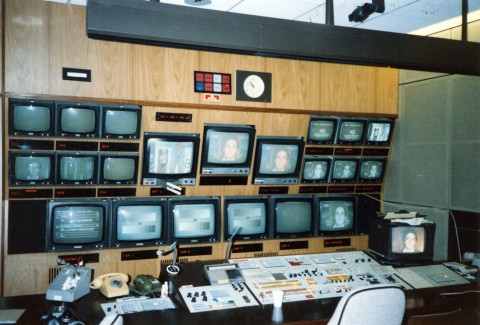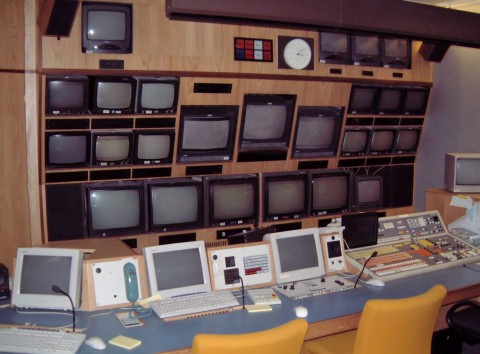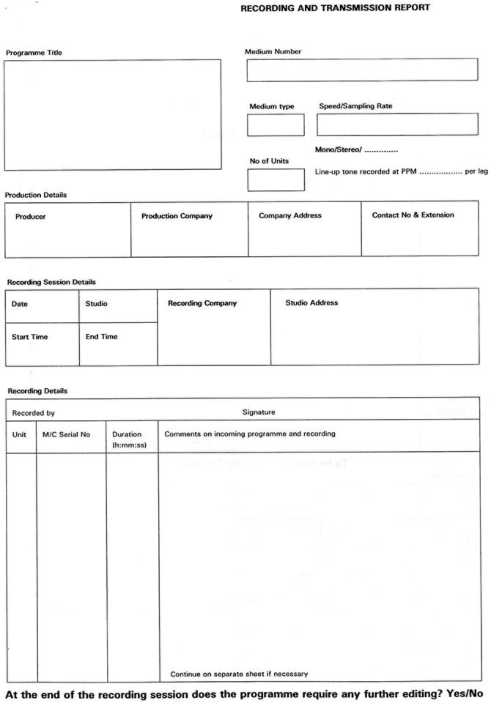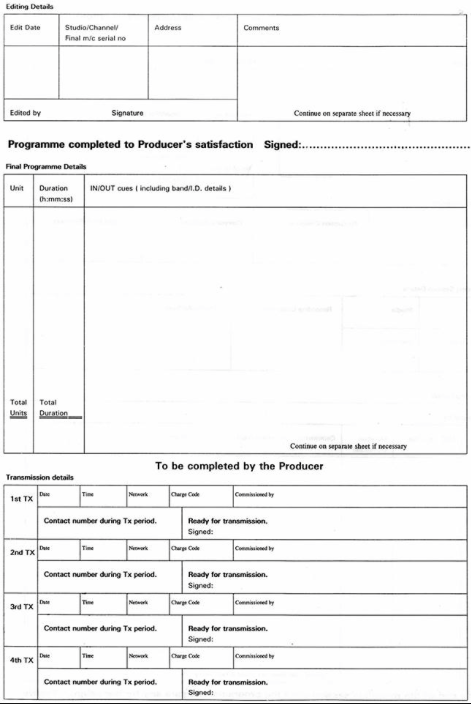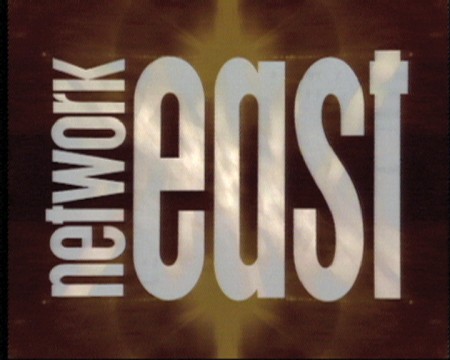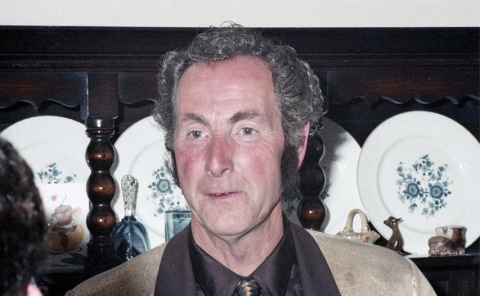Dubbing mixer, Dave Baumber, sadly died on Wednesday 6th August, of a brain tumour.
Dave was a legendary dubbing mixer, and one of the best in the business. He had great skills, and if he said something couldn’t be done, it couldn’t be done. Anyone working in any production team was always delighted if Dave was available to mix their programme. Dave worked originally for the BBC in London, and was head hunted, when Pebble Mill opened, to move up to Birmingham and work primarily on drama.
I was talking today to Phil Thickett and he told me a story of working with Dave. Phil, was seconded from cameras to find out more about different departments and spent a couple of weeks with Dave, in dubbing, on Boys from the Blackstuff. Apparently what used to happen at the beginning of each day of the mix was that director, Philip Saville, would come in to the dubbing area and run his hand along the entire collection of BBC sound effects on disc, and select one at random. He would then hand the disc to Dave, and give him a side and track number. The challenge was for Dave to incorporate the chosen sound effect into the final mix. Dave was extremely creative about how to use the sound effect – sometimes slowing it down or speeding it up, or even playing it backwards, but he always managed to get the effect in, and for it not to stand out to anyone listening to the mix – the sign of a real professional!
The following comments were left on the Pebble Mill Facebook Page:
Peter Poole: ‘Dave was at the top of his craft. He was a lovely man and a perfect gentleman. I will never forget his help when I joined the BBC. He was an inspiration to me. He will not be forgotten.’
Andrew Godsall: ‘I worked with Dave on and off between 1978 and 1981. He was a positive, ‘can do’ person who had that great mix of positive criticism of the institution we all worked for. He was forward thinking and looking, and respected by all his colleagues. He knew about team work and knew when to work and when to play. The dubbing theatre at Pebble Mill was a creative and fun place to be around.
Around that time Dave had just moved out to the country and loved growing veg and living the Good Life. What a great guy. May he rest peace.’
Philip Morgan: ‘I was honoured to work in the record room for Dave at Pebble Mill and at Oxford Road when he came up to mix a dub there as well. He was a real professional and always helpful and (reasonably) tolerant of my mistakes and lack of knowledge. In the 1970’s film dubbing was very much a mechanical and analogue process. The bays (Perfectone) would rock’n’roll and stop and start with a “graunching” sound – the Assistant Recordist in the record room hoping that all the splices on the mag tracks held and that ‘drop-ins’ on the record track would be imperceptible. When Dave was faced with inferior soundtrack materials he would grumble that editors would go out with the same standard they came in with – but then he would somehow work his mixing magic and raise the standard anyway!’
Ray Lee: ‘I first met Dave at Lime Grove when I was in Film Maintenance, and I believe Alan Dyke was the senior dubbing mixer. Dave one day rang down to say the fuses had blown in the “Keller” a flatbed 16mm trnasport with 6 sepmag tracks and two optical tracks. It was a 50min programme due to be aired later, that day, and about half way in. I went armed with a pocket full of fuses, powered down and replaced them. Fortunately when repowered all appeared to be well, and the tracks still appeared to be in sync when the transport was relocked. If they had had to wind back to the top and resync on the leaders, there was some doubt as to whether the programme would be ready in time for transmission.’
Lynn Cullimore: ‘I remember particularly working with Dave on location in Morecambe bay. He was fun and professional. Great guy.’
Eurwyn Jones: ‘I also worked with Dave in the Dubbing theatre as a projectionist along with Stan Treasurer. He was a true professional and perfectionist and tackled heavy drama dubbing with such skill. Film editors came from different regions just to have him dub their productions. If Stan was still with us I’m sure he would agree with all the comments here wholeheartedly . It was a pleasure to know him.’
Murray Clarke senior: ‘So very sad. On my first television drama All Creatures Great and Small, Pebble Mill gave me Dave as a BOOM SWINGER – just to keep an eye on me and advise me!!! He’d been a Dubbing Mixer for years by this time. A lovely gentle man.’


